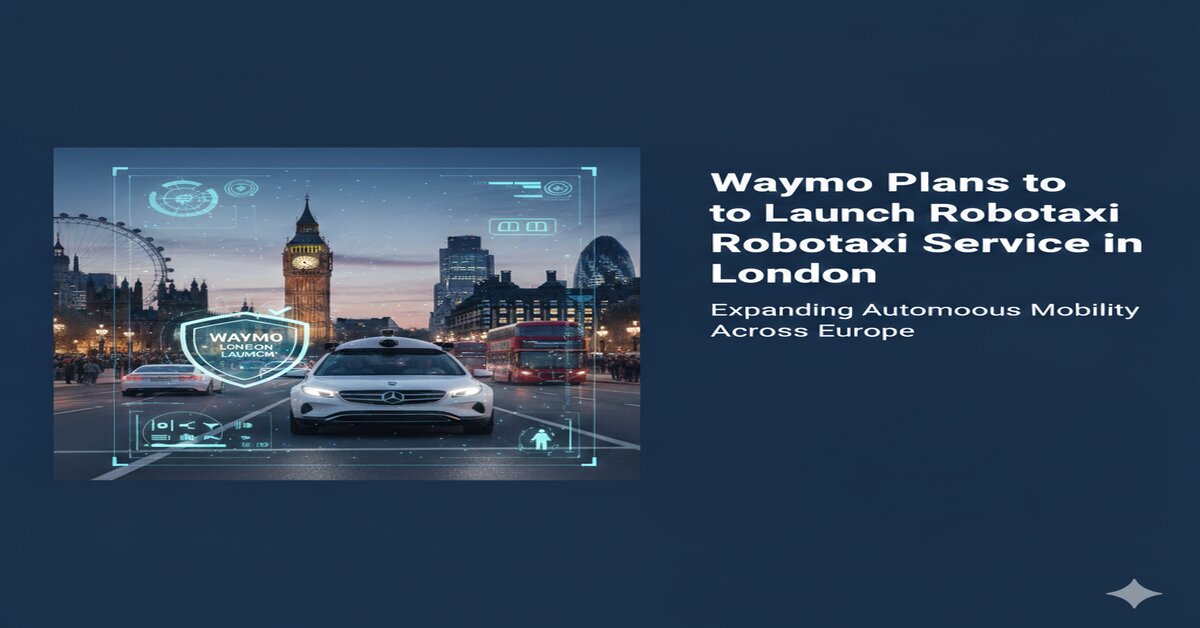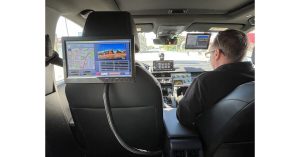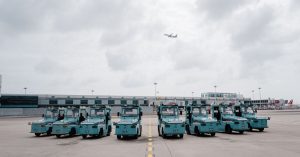London is set to become the next testing ground for self-driving technology, as Waymo, Alphabet’s autonomous vehicle division, confirmed plans to launch its commercial robotaxi service in the city by 2026. The move marks a major milestone for the company — and for the U.K. — as Waymo expands its global ambitions beyond the United States and Japan.
The announcement on Wednesday ends weeks of speculation after Waymo posted a series of new London-based job openings that hinted at an upcoming European launch. For the company, the U.K. isn’t entirely new territory. Back in 2019, Waymo acquired Latent Logic, an Oxford University spinout specializing in imitation learning, a technique that helps artificial intelligence systems simulate human driving behavior. That acquisition gave Waymo not only cutting-edge research talent but also an engineering hub in Oxford, which remains an important center for its European operations.
Waymo said its electric Jaguar I-Pace SUVs, equipped with the company’s latest autonomous driving technology, will soon begin appearing on London’s roads. At first, these vehicles will operate with trained safety drivers behind the wheel — a necessary first step in testing — before transitioning to fully driverless trials. Once the system is proven safe and reliable, Waymo intends to invite Londoners to hail rides through its robotaxi service, following a playbook that has worked successfully in U.S. cities such as Phoenix and San Francisco.
Details such as the fleet size or the timeline for removing human drivers remain undisclosed. However, Waymo spokesperson Ethan Teicher confirmed that the company aims to offer rides to the public as early as next year, pending the U.K. government’s final approval for commercial autonomous vehicle services. Regulators are currently developing a national framework to govern self-driving technology — one that could make the U.K. a leader in Europe’s emerging driverless mobility sector.
Waymo also plans to partner with Moove, a mobility company that already manages the firm’s autonomous vehicles in Phoenix. Moove will take charge of fleet operations, including vehicle maintenance, charging, and cleaning, while Waymo oversees the software, safety systems, and remote monitoring. The arrangement mirrors partnerships in other U.S. cities, where companies like Uber share operational responsibilities while Waymo handles the autonomous technology.
In recent years, Waymo has ramped up its expansion efforts, moving beyond its initial stronghold in Arizona to launch commercial robotaxi services in Los Angeles, Austin, Atlanta, and San Francisco. Future plans include rollouts in Miami, Nashville, and Washington, D.C.
For London, the arrival of Waymo represents more than just a new transportation option — it’s a glimpse into the future of urban mobility. If all goes as planned, by 2026 Londoners could be summoning sleek, driverless electric cars through an app, joining a small but growing number of cities around the world where autonomous transport is no longer experimental but part of everyday life.







